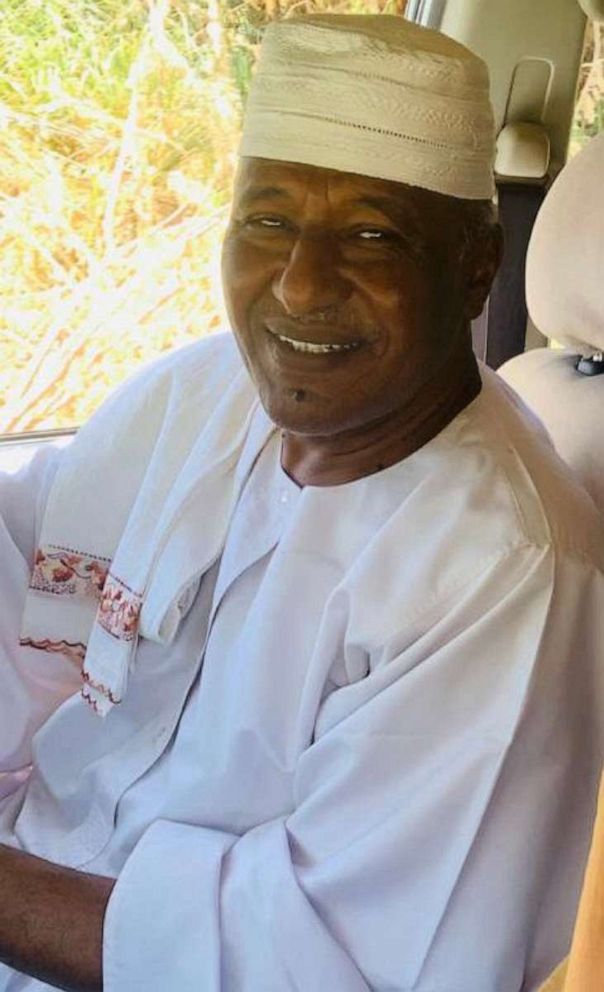(LONDON) — Perturbed by the stench entering his family home in Bahri, Khartoum North, Dr. Noah Madni and his remaining neighbors decided to remove the bodies amassing in the street themselves.
“No one from the military or health ministry was coming to pick the bodies up,” Madni told ABC News.
He and his neighbors gathered a party of people from different specialties. They set about assigning roles and organizing transport. Madni then shared pictures on Facebook, calling on friends and families to contact him if they saw a dead body.
For weeks the world has watched an exodus of more than 100,000 people from Sudan, the northeastern African country where a dispute between rival generals has led to a bloody internal conflict. Cease-fire talks have stalled. And citizens and doctors who remain face a worsening humanitarian situation and the monumental task of preventing Sudan’s fragile health system from full-scale collapse.
Civilians account for a small number of the dead that Madni encounters, he said. Instead, the majority are members of the Rapid Support Forces, a powerful Sudanese paramilitary group. Many are soldiers aged between 20-30 years old, though Madni said he has heard some are as young as 16.
“We wash them and bury them in the cemetery. We try our best to dig holes. We are just trying our best,” he said.
Photos show burial sheets, bodies wrapped and ready for burial, and graves being dug at Hillat Hamad Cemetery in Bahri.
‘This is about basic human dignity’
With electricity in short supply and near constant air raids and gunfire prohibiting families and medical teams from collecting their dead, the issue is a prescient one, said Alyona Synenko, regional spokesperson for Africa with the International Committee of the Red Cross.
“We’ve been hearing about lots of bodies piled up in morgues. These were bodies from before these hostilities started, they were abandoned in morgues without electricity.”
Sudan Doctor’s Trade Union has warned of an “environmental catastrophe” as the bodies of soldiers and civilians caught in the crossfire lie in the street for days. They advised citizens in a Facebook post to avoid washing bodies that had reached a great degree of decomposition.
The bodies pose a public health risk, but civilians were also warned to avoid them as a measure of basic human dignity, Synenko said.
“These are not just bodies, these are people. It’s important to properly collect them, identify them in a dignified way,” Synenko told ABC News.
One video posted on social media shows a body being removed from ِِِAl-Wadi Street, Omdurman, Sudan, on April 17. Other social media posts seen by ABC News show bodies lying unburied in homes in embattled areas of Khartoum for weeks.
“It’s a Muslim country and there is a tradition to bury people very quickly,” Synenko said “The cultural and religious traditions must be respected.”
Several physicians ABC News spoke to reported families were burying loved ones or colleagues wherever they could, often in their own gardens.
The ICRC said it’s working closely with the Sudanese Red Crescent society engaged in “Dead Body Management,” which includes collecting, identifying and burying those that have been killed. Whilst the ICRC has supplied 100 body bags, they have warned of potential implications when people are not identified.
“It’s important to prevent people from going missing,” they said. “If we have dead bodies that are not properly identified, that can translate into years or decades of suffering for families who will then try to find their loved ones and won’t be able to do so if somebody was killed and buried somewhere without proper identification.”
Sudan’s Doctor’s Trade Union has advised volunteer groups to assign numbers to each unidentified corpse and record the place of death and any identification papers they may be carrying.
“It is possible to go back to exhume the corpses and take a sample of the bone for DNA testing after the end of the war.”
ABC News has reviewed photographs on social media showing pictures of unidentified corpses and numbered graves. One caption reads: “I have a name but buried unknown on May 23. 3487 that’s my name, remember me to survive”.
Civilians missing in Khartoum
Israa Kamal Ali, 22, said she has had no contact with her father since May 2.
Kamal Ali Osman left his home in Al Sahafa to collect heart medication from his father’s home in Omak. Osman later sent a text message to his family telling them he had been stopped by the RSF, but minutes later these messages were deleted, Israa told ABC News from Cairo, Egypt.

“We think they forced him to delete the messages,” Israa explains that the 60-year-old had recently undergone heart surgery that requires daily heart medication.
Israa’s family is one of hundreds that have taken to social media to seek information about missing loved ones since the conflict began. According to the local monitor, the Missing Persons Initiative, 190 Sudanese people are now deemed missing.
“It has been a difficult time for my family,” Israa said. “We are constantly worried about him and his health.”
ABC News’ Ayat Al-Tawy contributed to this report.
Copyright © 2023, ABC Audio. All rights reserved.


